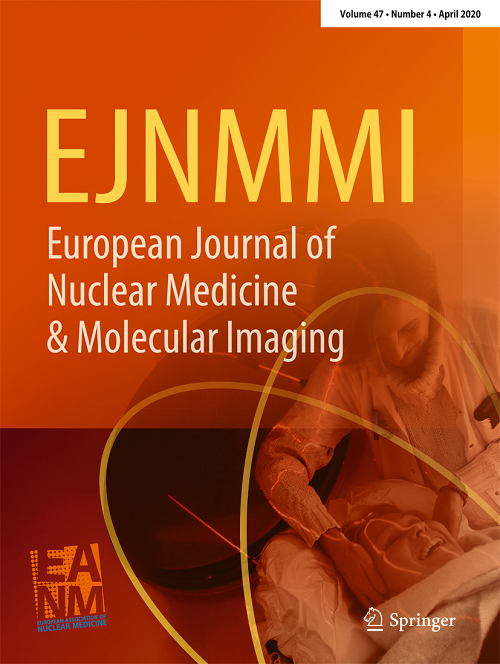衔接政策与创新:SPARC-Europe对癌症护理中放射治疗的愿景。
IF 7.6
1区 医学
Q1 RADIOLOGY, NUCLEAR MEDICINE & MEDICAL IMAGING
European Journal of Nuclear Medicine and Molecular Imaging
Pub Date : 2025-09-20
DOI:10.1007/s00259-025-07534-2
引用次数: 0
摘要
SPARC-Europe是放射治疗和癌症治疗利益相关者政治联盟,于2020年10月成立。它代表了一项雄心勃勃的合作倡议,旨在通过推进将放射治疗(rlt)制度化所需的政策和基础设施来改善整个欧洲癌症患者的预后。目前的指导委员会由几种类型的卫生保健专业人员组成,如核医学专家、临床医生、护士、物理学家、无线电药剂师和患者倡导者,他们有着共同的愿景。自成立以来,SPARC-Europe取得了几个显著的里程碑,包括发表了一份关于改善获得rlt的高级别立场文件。制作投资途径文件以指导基础设施发展,录制令人信服的患者证词视频,使扩大获取的需要人性化,组织两次有影响力的政策活动,专门讨论放射性核素供应和医院基础设施,支持欧洲议会提出的动议,要求对放射性核素供应和医院基础设施进行投资。SPARC-Europe正在通过有针对性的研究和试点项目继续深化其工作,包括RADAR (Radioligand Awareness research),这是一项专注于神经内分泌肿瘤和前列腺癌的全球调查,旨在评估患者和医生对rlt的认识、可及性和认知。通过将政策、科学和耐心的倡导结合起来,SPARC-Europe不仅支持创新,而且积极塑造将创新提供给最需要创新的人所需的框架。随着欧洲卫生形势的不断发展,SPARC-Europe提供了一个模式,说明以患者为中心、以证据为基础和了解政策的联盟如何能够推动有意义的变革。本文章由计算机程序翻译,如有差异,请以英文原文为准。
Bridging policy and innovation: SPARC-Europe's vision for radioligand therapy in cancer care.
SPARC-Europe, the Stakeholder Political Alliance for Radioligand Cancer Therapies, was launched in October 2020. It represents an ambitious and collaborative initiative aimed at improving outcomes for cancer patients across Europe by advancing the policy and infrastructure needed to institutionalize Radioligand Therapies (RLTs). The current steering committee comprises several types of health care professionals, such as nuclear medicine specialists, clinicians, nurses, physicists, radio-pharmacists, and patient advocates, under a shared vision. Since its inception, SPARC-Europe has achieved several notable milestones, including the publication of a high-level position paper on improving access to RLTs., the production of an investment pathway document to guide infrastructure development, the recording of compelling patient testimony videos to humanize the need for expanded access, the organization of two influential policy events dedicated to RLTs, the support of motions for resolutions in the European Parliament that call for investments in radionuclide supply and hospital infrastructure. SPARC-Europe is continuing to deepen its work through targeted research and pilot programs, including the RADAR (Radioligand Awareness Research), a global survey focused on neuroendocrine neoplasms and prostate cancer to assess awareness, accessibility, and perceptions of RLTs among patients and physicians. By bringing together policy, science, and patient advocacy, SPARC-Europe is not only supporting innovation but actively shaping the frameworks needed to deliver it to those who need it most. As the European health landscape continues to evolve, SPARC-Europe offers a model for how patient-centered, evidence-based, and policy-savvy coalitions can drive meaningful change.
求助全文
通过发布文献求助,成功后即可免费获取论文全文。
去求助
来源期刊
CiteScore
15.60
自引率
9.90%
发文量
392
审稿时长
3 months
期刊介绍:
The European Journal of Nuclear Medicine and Molecular Imaging serves as a platform for the exchange of clinical and scientific information within nuclear medicine and related professions. It welcomes international submissions from professionals involved in the functional, metabolic, and molecular investigation of diseases. The journal's coverage spans physics, dosimetry, radiation biology, radiochemistry, and pharmacy, providing high-quality peer review by experts in the field. Known for highly cited and downloaded articles, it ensures global visibility for research work and is part of the EJNMMI journal family.

 求助内容:
求助内容: 应助结果提醒方式:
应助结果提醒方式:


